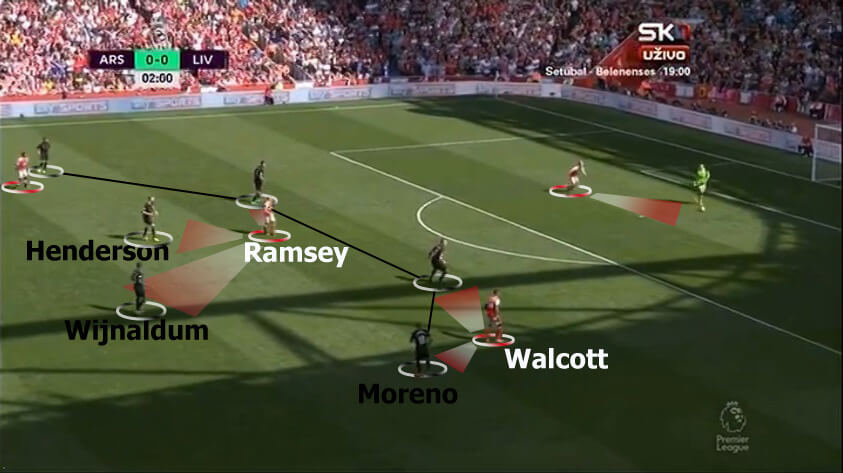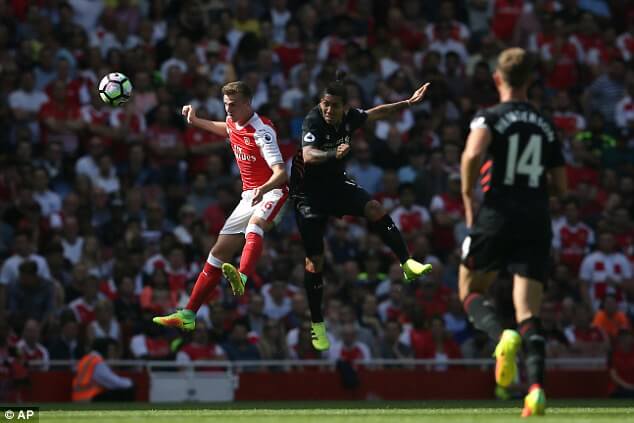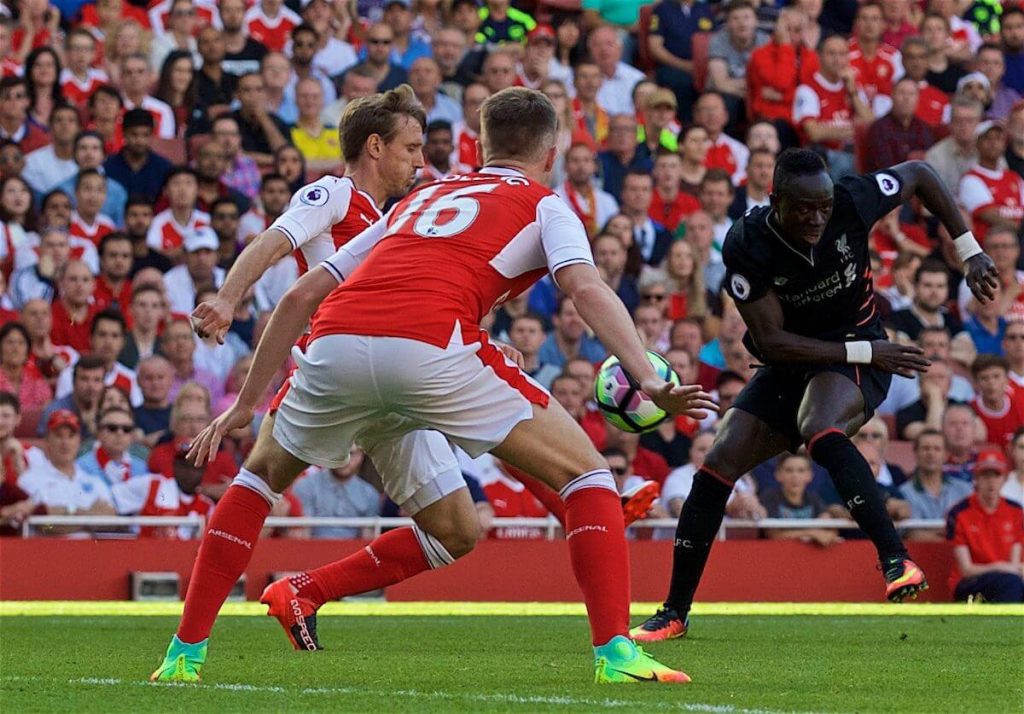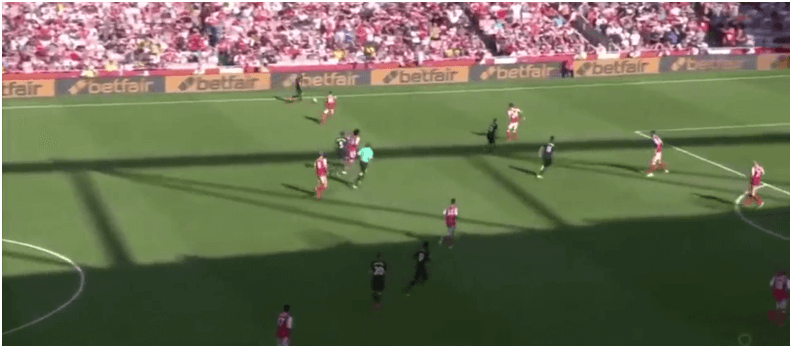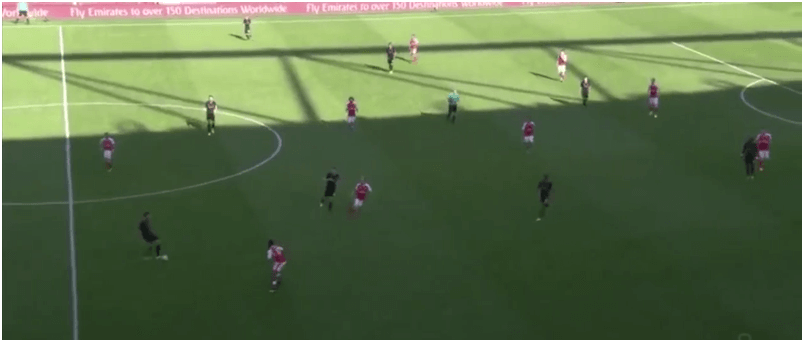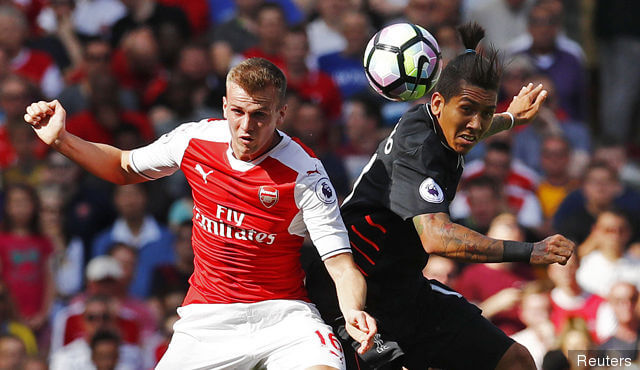Tactics and not lack of Transfers to blame for loss against Liverpool
- 492 Views
- aksceditor
- August 17, 2016
- Tactics & Match Analysis
Yet again, the takes were easy. After another summer of what one might benignly call masterly inactivity, Arsène Wenger’s Arsenal stumbled on the opening day of the season. If it was designed, it wasn’t very grand. But ultimately, Sunday’s match should not be viewed through the prism of successive opening day failures that are linked to transfers. Instead, Sunday’s match should be viewed as another worryingly poor tactical performance where Arsenal have systematically failed to produce coherent play. Such matches and tactical performance have become a hallmark of the late Wenger reign, and they, far more than transfers, have cost Arsenal in the title race in years past and could do so again this year.
Much of the post-match analysis, starting with the analysis of none other than the manager, has centered around Arsenal’s inexperienced defenders. But while Rob Holding and Calum Chambers both made mistakes–Holding should not have stepped out to mark Philippe Coutinho before Liverpool’s second and Chambers was too easily drawn out of position and beaten by Sadio Mané for Liverpool’s fourth–they are not to blame for Arsenal’s implosion. Everyone knew they would be the centre back pairing, and with that in mind, Arsenal should’ve done more to protect them.
Protecting the back line begins in central midfield, where Arsène Wenger inexplicably selected Francis Coquelin, rather than the £35m signing Granit Xhaka, to play alongside Mohamed Elneny. Unless there is an injury, Coquelin should not be starting ahead of Xhaka or Elneny. Whatever Coquelin provides in tackling, he loses by being recklessly out of position and by being unable to offer himself to centre halves for build up play, which Elneny also failed at. Thus, instead of building through the middle, Arsenal had to build out wide, which, while a good way to avoid Liverpool’s compact midfield, left Arsenal’s wide players bereft of passing options because of the poor movement of Arsenal’s midfield, especially of Coquelin and Elneny. These problems can be seen in the passing network below.
Moments of good play did occur, especially when Aaron Ramsey dropped off to combine with the likes of Iwobi and Monreal, but Arsenal’s two big chances came from winning the ball higher up the pitch. Arsenal were unable to sustain this pressure, and immediately dropped deeper after going 1-0 up.
Arsenal went for a man-oriented pressing approach, which Liverpool were unable to handle, mainly due to the limitations of using Jordan Henderson to build play. Thus, Arsenal were often able to force Liverpool to play back to Simon Mignolet, and thus in that sense, were able to “protect” Holding and Chambers, despite positional indiscipline from someone like Francis Coquelin.
However, Jurgen Klopp was able to adjust his team’s play at half time, and Liverpool made far more of the half-spaces that were between Arsenal’s defence and midfield, spaces that were far bigger as Arsenal dropped off and lacked urgency in the press.
At half-time, I was really happy about having it because we could speak about everything and it was clear – our mistakes were so big so it was easy to speak about them because the players already felt it, but couldn’t change it in the game.
We changed our way of defending and we showed and told them where the spaces were, where we could go. Arsenal were better in the first half, of course, but the goal and the penalty was after we’d lost the ball. When we had good orientation, used the wings and used the width of the pitch, Arsenal had to run and today it was really difficult to do this for 90 minutes.
As Klopp said, the space was there the whole time; Liverpool were just unable to exploit it. Some of it was down to Arsenal defending slightly better in the first half, but ultimately, it was far too easy for Liverpool to adjust and then dominate the ensuing 20 minutes after half time.
Arsenal bad
Arsenal bad again
The above two images are in the build-up to Liverpool’s second and then third goal. Arsenal’s shape in both is horrific. In the first, there is too much space between the midfield three and the centre backs, space that Coutinho exploits, causing Holding’s error, which is compounded by Coquelin’s failure to track Adam Lallana. Dropping deep to keep players behind the ball is a fine strategy but requires Arsenal to be compact. We see this in the third goal, where Liverpool keep possession for over 20 passes before working the ball out wide, causing Arsenal to run—as Klopp noted. Here, Coquelin is closer to the centre backs, but the difference between Elneny and Ramsey and Alexis is too great, allowing Liverpool to always have an extra man in possession.
These are not problems of talent or transfers; they are problems of tactics and coaching. Ultimately, Jürgen Klopp was able to identify space, and enable his team to exploit it. Arsène Wenger could not react to this, and his players lacked the experience and football intelligence to mask his mistake. Arsenal have lost their two leaders from previous seasons in Mertesacker and Arteta, two players who had the intelligence to effectively organise Arsenal and cover for Wenger’s errors. Without those players, and without Granit Xhaka, who could at least give Arsenal better structure and contribute to better build-up play, and Mesut Özil, Arsenal were unable to hold possession under Liverpool’s pressure.
The presence of talented and intelligent players in the squad such as Özil, Ramsey and Xhaka, as well as experience from Koscielny, will mean that Arsenal should not suffer greatly from Wenger’s continued failure in building a system that gives Arsenal’s players passing options on the ball and closes off spaces out of possession. But Arsenal will not win the league or the Champions League under this calibration. The 4th goal is instrumental. It is not only Chambers and Coquelin who look bad; it is also Santi Cazorla, who loses the ball under pressure and without a good passing option, it is also Nacho Monreal, Arsenal’s most consistent defender over the past 20 months, who is also pulled out of position. These are not bad players; they are players in a bad system.
In a Premier League that is now full of superstar managers, it is not Wenger’s lack of transfer activity that stands out—Chelsea are bereft of defenders, with only 5 in the squad, Tottenham have only added Vincent Janssen and the mediocre Victor Wanyama—but rather his lack of tactical acumen that puts him behind Mauricio Pochettino, Jürgen Klopp and Pep Guardiola.

